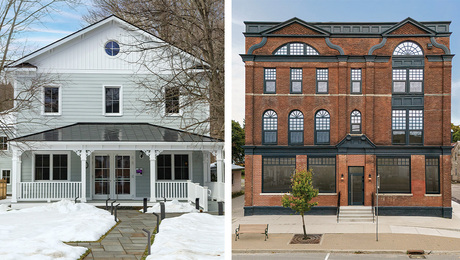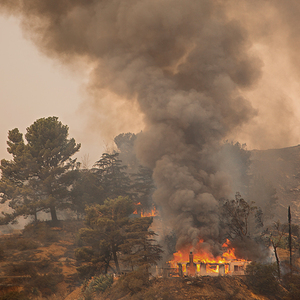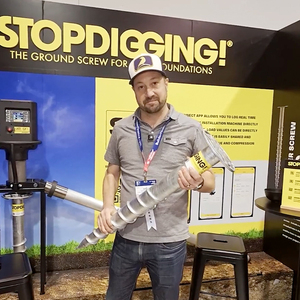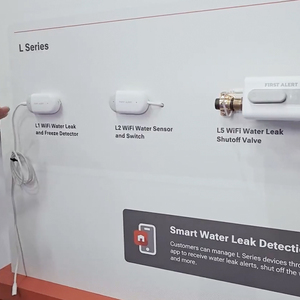I am going to do a DIY renovation in Ontario (near Hamilton). The job will involve changing a roof line, joists, framing, windows, flooring, cabinets, trim, etc. I have an opportunity to get tools in the States now but I am not sure what I will need that I don’t have. A list of what I have is below.
What I am really wondering about is pneumatic nailers – (the Makita AG125 looks cool) but I am confused by the array of choices, re: sizes, types, etc. I am in a much better position to buy now than later, so I need advice without knowing more about it myself. Any thoughs? I also need a compressor, but I hate the fantasy specs they all seem to have. For a sprayer I have my eye on (for polyester), I need 10 cfm, but I would much rather have a 115v than a 230.
I have miter saws, cordless impact drivers, drills, circular saws, jigsaw, small hammer drill, recip, pneumatic floor nailer, routers (got the 3 1/2 horse Hitachi for $113 delivered from Amazon!), belt sander, palm sanders, 7″ polisher/sander, cut-out tool, small table saw (Ryobi 3100)…probabably more that I cannot think of, as well as hammers, prybars, etc.
Thanks
John



















Replies
Take advantage of the 20% discount at Lowe's. Make sure that the nails you need for your gun are available locally, or buy enough for the job. I prefer Max nailers, but any brand name nailer you buy will be just fine - Hitachi, Senco, Bostitch, Paslode, DeWalt, Porter-Cable, and so on. Buy one of many $300 range compressors available. In the cold weather, you might do better with an oilless compressor. Do some searching on Amazon.com. I don't think you need more than that for most paint guns. If you do, there is a great little paint gun combo available called the Wagner Paint Crew for under $200.
Good Luck, I think you will need it.
Any advice on the type of nailer? I see framing, finish, roofing, - stick, coil, - clipped head, in various gauges...Do I need more than one? I really don't know about this field (like I needed to tell you this).
I have taken a great deal of advantage of the Lowes sale - through Amazon & Home Depot - and was thinking of ading a little more, though the Lowe's sale excludes air tools, I think. I am having trouble finding a 10 cfm compressor for $300 - did you know one in particular?
Thx
John
I guess I wasn't clear previously about the 10CFM. Unless you are planning to use heavy-duty automotive-type impact wrenches, I don't see the need for 10CFM. I assume you will be one person using any particular tool, as opposed to a crew. Almost any compressor available at Lowe's or HD today will handle at least one framing nailer. That same compressor will handle a one-person painting operation. If you use the Wagner product I mentioned, it does not rely on a compressor. It is self-sufficient.
I was hoping some more folks would hop onto this thread to answer your questions as you seem to be taking on a lot of responsibility in your goals. From what you have posted, I am not sure that you have the experience to do all of the things you mentioned without problems. It seems to me you are taking on a fairly complex job, yet you are asking questions that I would not expect from someone who is going to do that type of work. I do not mean to be disrespectful of your intent. To do correctly what you first posted would require a fairly sophisticated level of framing experience. These are deep waters that you are wading into.Les Barrett Quality Construction
Thanks Les.
As I said earlier, I am going to be spraying polyester so I need a compressor capable of 10 cfm, which I think puts me into the 230V world, unfortunately, but I am still looking. I would prefer not to get two compressors.
I intend to get help on the reno when I need it, for the framing, for example, but my goal is to do as much myself as I can, to save money and for the sense of accomplishment. My tool buying is ahead of my knowledge, which is not typical for me, but tools are so much costlier in Canada the timing is out of my hands.
John
Framing - a stick nailer is easy to use, but a coil nailer usually holds more nails. Stick nails are easy to find. Round heads are required by code in some areas. Clipped heads come in larger quantities per clip. The heads are clipped so they will fit together more closely. Usually, they are joined by paper, which can be a problem if the nails get wet. I use round heads exclusively. I believe the larger head provides more holding power and the plastic clips make moisture problems go away. Be sure to use hot-dipped galvanized nails for fastening treated wood, such as decks and mudsills.
Siding - I like tha Max and Hitachi coil nailers. Be sure to use ring-shank, galvanized nails for siding and trim. When you are on a ladder, you will appreciate the greater capacity of a coil nailer. Coil nails are widely available for siding applications, but expensive.
Trim - Pick a gun you like. Get some 2" and some 1 1/2" nails as a start.
Make sure to oil your guns daily with 4 to 5 drops of gun oil. Keep them from freezing. Use a little WD-40 on the moving parts periodically. Get some Kill Frost to keep the guns and hoses from icing up in freezing weather.
If you want to get a roofing nailer, I would recommend the new Bostitch, which I recently purchased myself. It is an old standby that has been upgraded with a few nice features.
I like to use 1 1/4" nails for standard shingles.Les Barrett Quality Construction
Thanks so much Les - this is very helpful.
A lazer level can come in pretty handy
I recommend you set yourself up with pneumatic nailers. If you're going to be doing this for any length of time, it will make a big difference to you.
For a framing nailer, I'd get a clipped-head 30-degree nailer. (Under no circumstances should you get the Porter Cable stick nailer; it's dangerous.) Paslode is pretty good; but if you want the best, go for the extra $$ for Senco. When you're installing trim, a 15- or 16-gauge finishing nailer can be useful too, and they are not particularly expensive. PC makes decent finishers. Bostich's is much more expensive but works well too and will probably take more abuse over the long term. For any kind of air nailer, stay away from el-cheapo crap like Airco, King, etc.
On the compressor I'd recommend an oiless twin hot-dog type. They are pretty easy to lug around and can take a lot of abuse if you get a decent 1½-2HP job. One thing that's important is to get good quality, flexible air hose and lots of it (at least a couple of 50-footers and a 25 as well). You want the compressor plugged directly into the power source with no extension cord; use long air hoses instead, it'll extend the life of the motor a lot.
If you can pick up an Arrow HT-65 hammer-stapler you will speed up your roofing a good bit. There's no point in buying a roofing nailer just for one roof; they are too expensive and only worth it to dedicated roofing specialists. I do three or four roofs a year and I don't bother having one but I've got a few HT-65's so every member of the crew can swing one.
Pick up a couple of B&D Workmates; these make very good, inexpensive tool stands for things like chop saws and portable table saws. They are also generally useful as clamps, sawhorses, etc. Worth the price. One of the best tools B&D makes.
And make sure you've got a couple of mid-sized (12-18") heavy-duty bar clamps, like Sandviks. Especially if you'll be working alone, they can save you all kinds of trouble.
Dinosaur
'Y-a-tu de la justice dans ce maudit monde?
One thing this DIYer wouldn't do without is my bucket containg four "parachute bags" of nails and screws in all sizes. I keep mostly galv nails and deck screws, so they can be used inside or out.
Of course, for bulk fastening use a nailer or buy a large box of fasteners, but lots of one-off stuff in DIY work goes a lot faster if you don't have to dig through the box of old, odd-sized nails or run off to the hardware store.